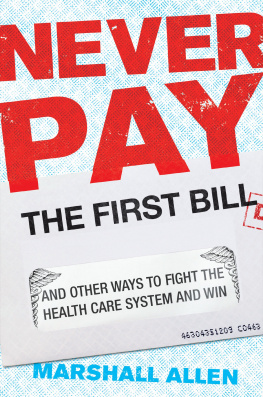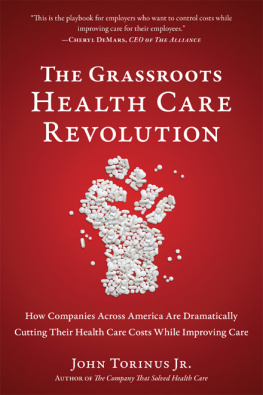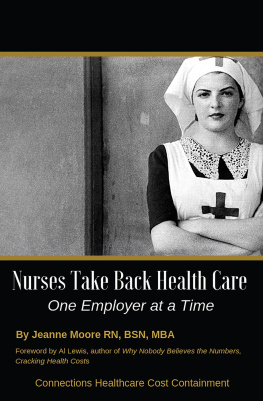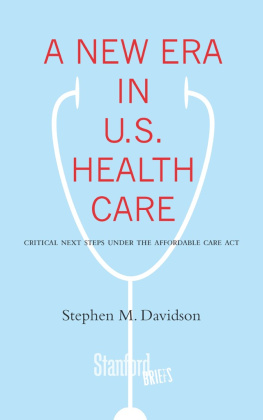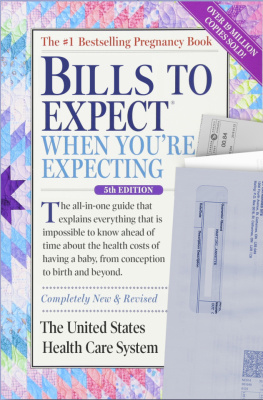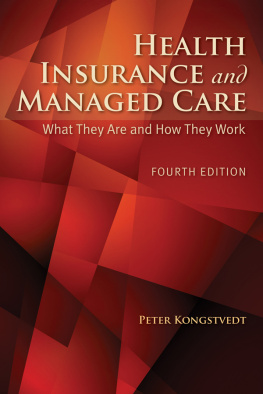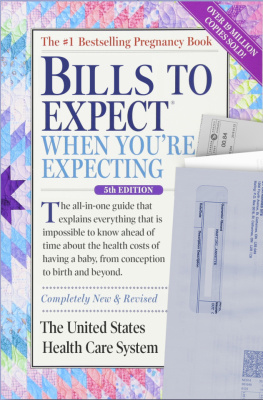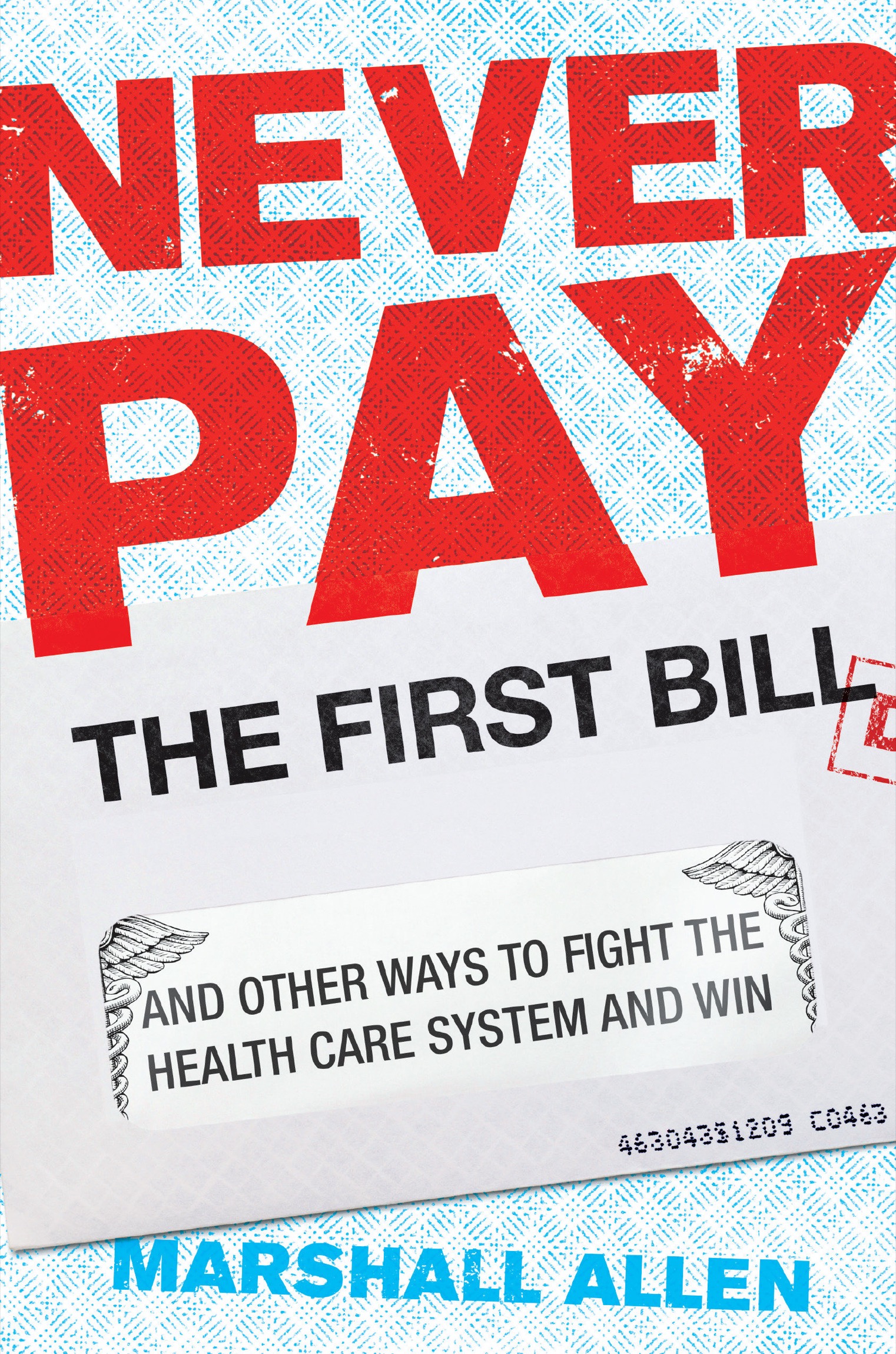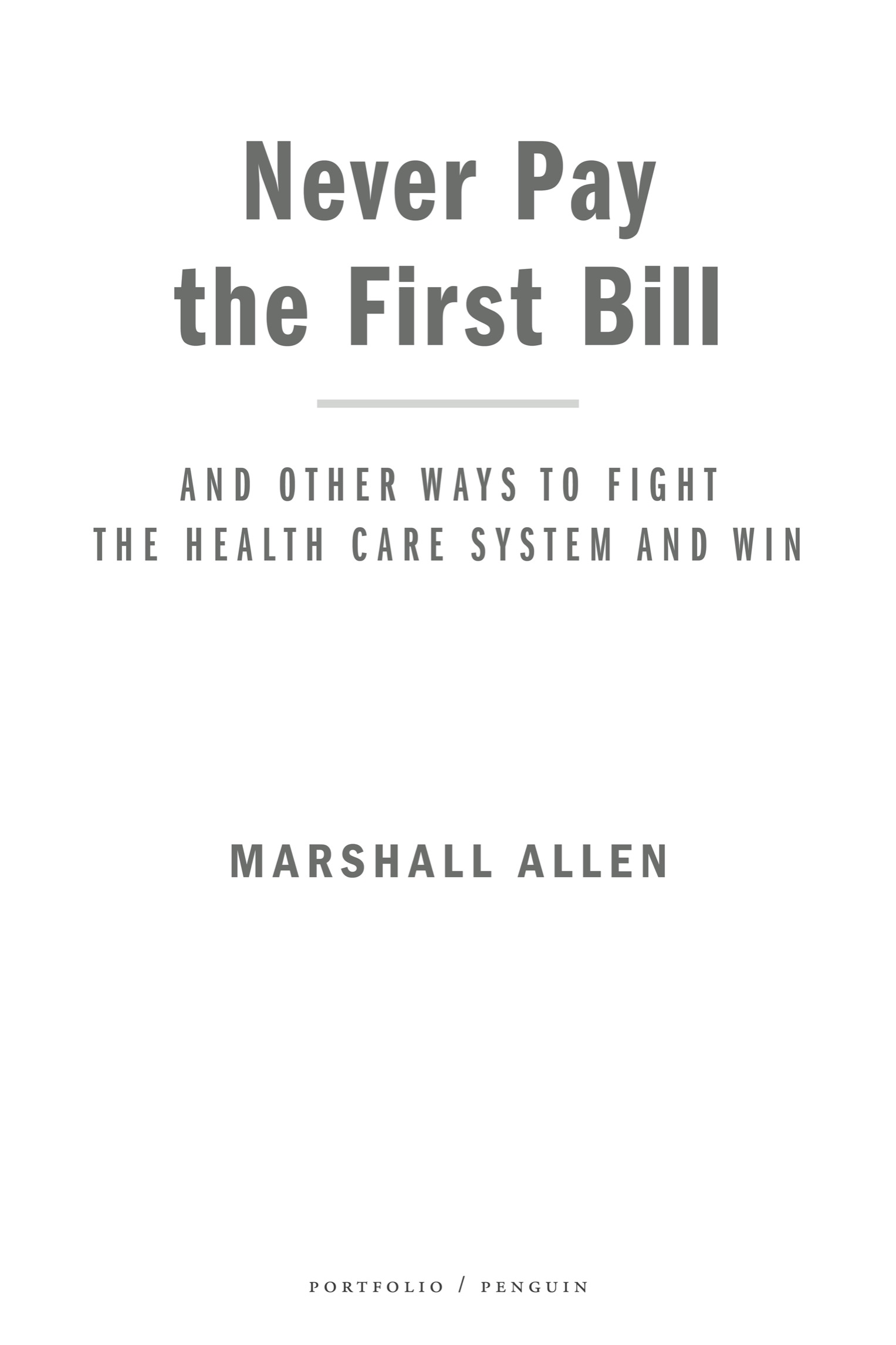
Portfolio / Penguin
An imprint of Penguin Random House LLC
penguinrandomhouse.com

Copyright 2021 by Marshall Allen
Penguin supports copyright. Copyright fuels creativity, encourages diverse voices, promotes free speech, and creates a vibrant culture. Thank you for buying an authorized edition of this book and for complying with copyright laws by not reproducing, scanning, or distributing any part of it in any form without permission. You are supporting writers and allowing Penguin to continue to publish books for every reader.
Grateful acknowledgment is made for permission to reprint the following:
Excerpt on courtesy of Jeffrey Fox, Los Angeles
Sample letter on by Lisa Berry Blackstock/Soul Sherpa
Library of Congress Cataloging-in-Publication Data
Names: Allen, Marshall, author.
Title: Never pay the first bill: and other ways to fight the health care system and win / Marshall Allen.
Description: 1st [edition]. | New York: Portfolio/Penguin, [2021] |
Includes bibliographical references and index.
Identifiers: LCCN 2021005233 (print) | LCCN 2021005234 (ebook) | ISBN 9780593190005 (hardcover) | ISBN 9780593190012 (ebook)
Subjects: LCSH: Medical errorsUnited States. | Medical care, Cost ofUnited States. | Medical careQuality controlUnited States. | Health insuranceUnited States.
Classification: LCC R729.8 .A55 2021 (print) | LCC R729.8 (ebook) | DDC 610.28/9dc23
LC record available at https://lccn.loc.gov/2021005233
LC ebook record available at https://lccn.loc.gov/2021005234
Book design by Tanya Maiboroda, adapted for ebook by Cora Wigen
PUBLISHERS NOTE
This publication is designed to provide accurate and authoritative information in regard to the subject matter covered. It is sold with the understanding that the publisher is not engaged in rendering legal, financial, or other professional services. If you require legal advice or other expert assistance, you should seek the services of a competent professional.
pid_prh_5.7.0_c0_r0
To anyone whos been pushed around by the American health care system
Contents
Introduction: My Mom and Dads Health Care Battle
Ive been an investigative reporter covering health care since 2006, and Ive been continually astonished by the unfair nature of the American medical system. Its outrageous that we pay far more for health care than the citizens of any other country without getting our moneys worth. Its alarming the way big playersdrug companies, hospitals, insurance companies, and othersprofit by exploiting our sickness and violating our trust. I talk every day to people who are getting taken advantage of by the system.
I wrote this book to arm individuals and employers with the knowledge, tactics, and inspiration they need to stand up for themselves and the people they care about. I also wanted to counter the idea that this is always a losing battle. Lots of people are fighting back and winningsaving hundreds or thousands of dollars by the savvy way they engage the system. I wanted to empower others to stick up for themselves and save big money. Little did I know that I would need to put my own advice into practice before I was through writing. But it happened, and I want to tell you that story here because it illustrates a lot of the principles that come into play.
My two brothers and I watch over our dear parents as they age. My mom and dad agreed to let me share our familys story because they care about accountability and justice and helping others. My dad, who just turned eighty, suffers from a slowly advancing form of dementia but is in excellent physical health. After years of his decline and my moms own health challenges, it became clear that she needed help caring for him. In the fall of 2019, at the same time I started writing this book, we made the difficult decision to admit Dad into an assisted living facility.
As a journalist, Ive written almost every type of health care horror story, including those about the problems in long-term care homes. We did an extensive check to make sure we avoided any truly dangerous places for Dad. My parents and my older brother live in northern Colorado, and thankfully we found a nice assisted living facility near them. The place was expensivemore than $6,000 a monthbut brand new and well appointed, with flat screen televisions, comfy couch areas, and good food. The staff was also kind and truly seemed to care about my dad.
The problem is, they got something extremely confused during the admission. My mom has my dads power of attorney, so she has the legal right to determine what type of care he should receive. She told the staff that she would continue to pick up Dad to take him to his established primary care doctor. My older brother was with her when she signed the admission paperwork, and they both say Moms direction was clear: Dad should not receive routine medical care at the assisted living facility. The facilitys executive director still had my mom sign a consent form for the primary care group that provided medical services at the facility. Moms understanding was that she signed it in case Dad needed emergency care, not for anything routine.
My mom and brother visited my dad almost every day or picked him up and brought him to church or family events. After he had been there for more than a month, they noticed a dramatic mental decline. He went from a warm, personable demeanor to acting lethargic and detached, almost robotic. Mom noticed but chalked it up to the dementia. Perhaps he was having a hard time with the transition.
Just before Christmas Mom got a pharmacy statement in the mail. It showed that, unbeknownst to her, my dad had been on a drug called tamsulosin, also known as Flomax, for more than a month. The statement said a nurse practitioner whom Mom had never heard of put Dad on the medication. Mom didnt understandhow could there be a new drug that she hadnt approved or known about? And who was this nurse practitioner? She quickly realized that the drug could have caused Dads recent decline. And when she looked up the possible side effects, they aligned with his symptoms of cognitive impairment. She called the administrator at the assisted living facility and ordered them to stop the Flomax immediately. They complied. Thankfully, Dad bounced back as soon as they stopped the drug. He had recovered, but it was despite the people who were supposed to be caring for him, not because of them.
Mom had already been unimpressed by the facility. The place felt empty, they often canceled activities, and Dad didnt get enough stimulation. She had already planned on moving him out, but this sealed it. Soon after the new year he moved to a different facility, where things went much more smoothly. About two months later, we all got hit with the COVID-19 pandemic. We moved Dad back in with Mom and they have been doing great. They are so happy and content to be together.
But it turns out the medication error was only one of the problems. Soon after the move out of the first facility, the billing department from the primary care medical group came calling. They didnt have Dads Medicare insurance information. Thats because they were never intended to provide his care. But they wanted his Medicare details so they could bill for a routine exam that the same nurse practitioner had performed on Dad. What!? This was the first my mom had heard of any exam! There wasnt supposed to be any routine treatment on Dad. The bill came to $445, they said, which sounded steep to me for an exam on a healthy dementia patient.

